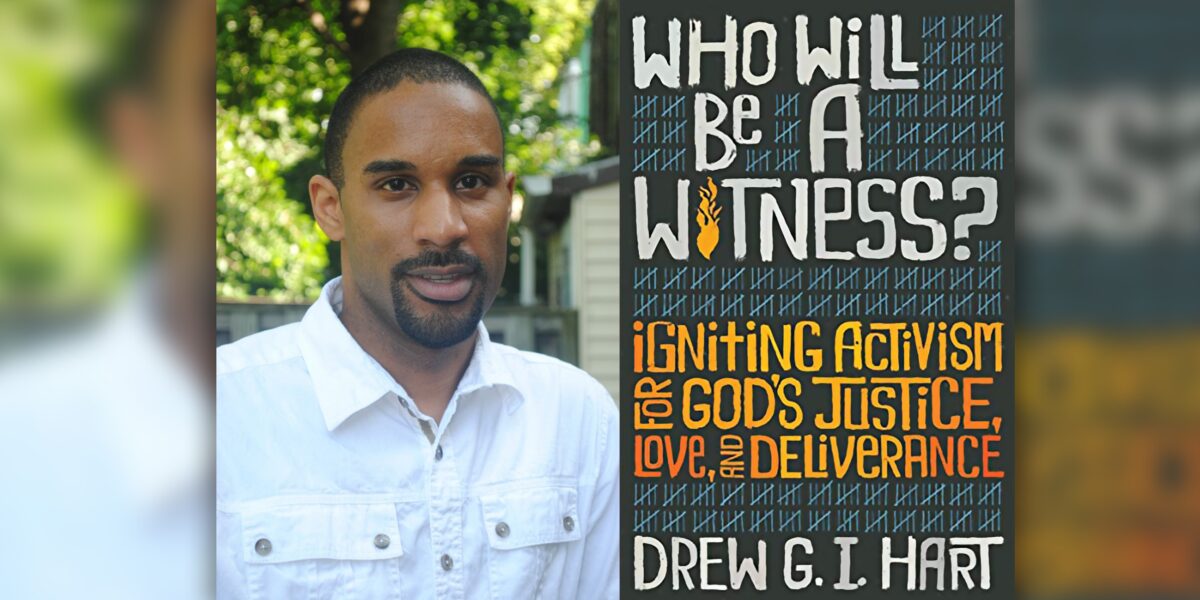Who Will Be A Witness? by
Drew G. I. Hart, Ph.D. is an easy, yet hearty, read that captures the revolutionary spirit of Jesus, while remaining rooted in history and tradition. Whether you’re a scholar of Black theology or just beginning to wrestle with the ways your faith may be influenced by White supremacy, this work can be insightful and encouraging. Overall,
Who Will Be A Witness? is a critique of the Whitewashing of Western Christianity and a call to remember the revolution of Jesus.
Dr. Hart characterizes Jesus as a revolutionary figure and links his actions to those of other radical movements that antagonized empire. He showcases how Western Christianity became beholden to White supremacy, including examples, such as Constantine, and Columbus and the history of chattel slavery in the United States. As the work ends, Dr. Hart implores his readers to remember that liberation must be rooted in love; Christians are called to reject the wisdom of the world that says violence is the only means to freedom.
While I appreciated each section of this book, I especially enjoyed the comparison between two revolutionary figures: Jesus Barabbas and Jesus the Messiah. Dr. Hart masterfully humanizes both figures, and in doing so, he paints a more complete picture of both.
He even gives Barabbas his name back by referring to him as Jesus Barabbas. Jesus means “the one who saves.” This linguistic truth sets up the contrast between the two men. Both care about liberation, but they have different means for achieving it. This leaves the reader with a choice, not between a violent criminal and a self-sacrificial lamb, but between two distinct paths towards freedom.
As I digested this section of the book, I felt as though Dr. Hart was speaking to something I’ve always felt uncomfortable with in Mennonite circles. We tend to reject all forms of violence, as pacifists, but we often do so without taking our privilege into account. We act as though violence isn’t an understandable response to constant death and dehumanization.
Truthfully, if you’re White, upper-middle class and safe from persecution, you can afford to be nonviolent. You have too much to lose. However, when you’re living in a system that is designed to use you then cast you aside, the calculations feel different.
By humanizing Barabbas, Dr. Hart recognizes the appeal of violent revolution and reminds his readers that both Jesus the Messiah and Jesus Barabbas came from the same revolutionary tradition. Both understood the plight of their people. Both were familiar with the pain and suffering caused by social inequity and systemic injustice. What separated them was Jesus the Messiah’s commitment to love and gentleness. They diverged only in the way they sought liberation, but both men understood the need for it.
Dr. Hart concludes by arguing that, while Jesus was revolutionary, the path toward liberation cannot be divorced from love. He notes that love isn’t without truth telling and accountability. Instead, it is a commitment to see the complexity and humanity of our enemies, while refusing to destroy them. This is the way to peace and the path to liberation.
In addition to these themes,
Who Will Be A Witness? also explores the church’s responsibility to address economic inequality and the strategies for justice making.
If you’re interested in exploring of the idea of Jesus as revolutionary and wondering what role the church has in addressing the most challenging issues of our time, this book is for you. It is written with a revolutionary zeal that shows that the systems that harm us must be destroyed, while exemplifying a deep love that reminds us that the people responsible for those systems must be saved. This is the cry of Jesus and the call of
Who Will Be A Witness?
Drew G. I. Hart is a professor of theology at Messiah College in Pennsylvania. Beyond teaching and writing, his experience includes pastoring, collaborating with local faith-rooted organizers and activists, and advocating and addressing societal challenges from a faith perspective.








